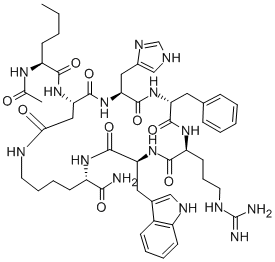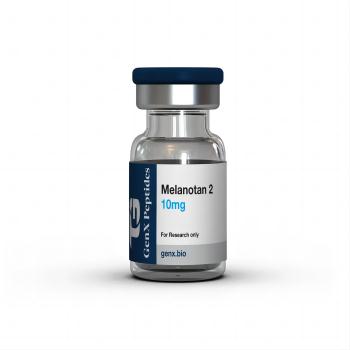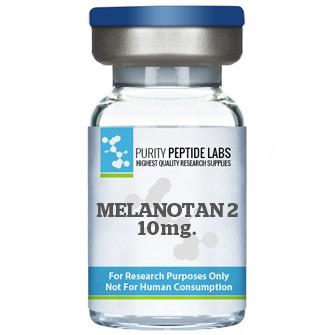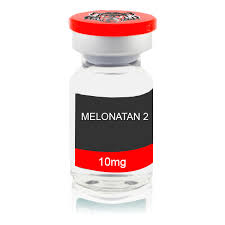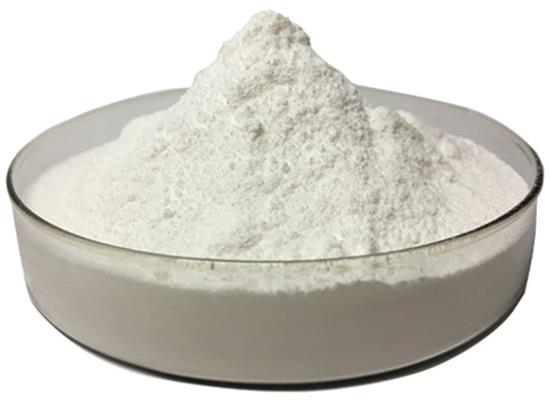Melanotan II: Promising Skin Tanning Peptide with Potential Renal Infarction Risk
General Description
Melanotan II, a synthetic cyclic heptapeptide designed to stimulate skin tanning, mimics natural melanotropin with modifications for enhanced potency and effects. Its structure, featuring key amino acid substitutions and a lactam bridge, facilitates a specific conformation that underpins its activity on melanocortin receptors, particularly MC1R, leading to increased melanin production. Extensive pharmacological studies have demonstrated its efficacy in inducing skin pigmentation both in vitro and in vivo. However, its non-selective agonist action raises safety concerns, notably the potential risk of renal infarction. This serious side effect, highlighted through case studies, emphasizes the need for caution and further research into Melanotan II's impact on kidney function and overall safety profile.
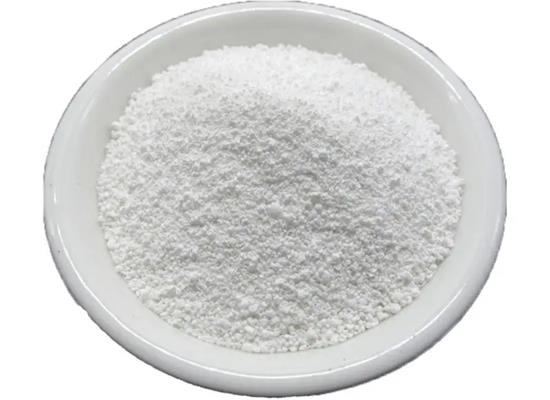
Figure 1. Melanotan II
Design and Chemistry
Melanotan II is a synthetic peptide designed to mimic the natural skin-tanning process. It is a cyclic heptapeptide, an advanced form of melanotropin, developed through the modification of its chemical structure to enhance potency and duration of effect. The core sequence of Melanotan II, His-D-Phe-Arg-Trp, is crucial for its activity, particularly the substitution of D-Phe-7, which significantly contributes to its superagonist properties. This modification stems from earlier findings that heat-alkali treatment of peptides could increase melanotropic activity by inducing partial racemization, specifically enhancing the racemization of Phe-7. Melanotan II's design incorporates two key amino acid substitutions adjacent to the central sequence and a lactam bridge, creating a macrocyclic structure. This design is supported by NMR spectroscopy and molecular modeling, suggesting a "reverse-turn" conformation at its active site. The development and study of Melanotan II, including its structure-activity relationships, have led to insights into its mechanism of action and potential therapeutic applications, particularly in skin tanning and possibly treating certain skin conditions. 1
In Vitro and in Vivo Pharmacology
Melanotan II has been extensively studied for its pharmacological effects both in vitro and in vivo, demonstrating significant melanotropic activity. The evaluation of Melanotan II's pharmacology utilized classical bioassays on frog and lizard skin, as well as modern techniques involving cell lines expressing cloned human melanocortin receptors (MCRs). These studies have shown that Melanotan II, like its counterpart MT-I, binds to and activates the human MC1R with high affinity, leading to increased cAMP levels indicative of receptor activation. Notably, Melanotan II exhibits sustained-acting effects, maintaining its biological activity for an extended period, as evidenced by prolonged skin darkening in frogs following subcutaneous injection, compared to shorter-lived effects from other peptides. Further supporting its potent melanotropic action, Melanotan II has demonstrated the ability to induce significant changes in skin color in vivo, such as transforming the pelage color of mice from light yellow to dark brown or black upon subcutaneous administration, showcasing its efficacy. Additionally, the use of transformed melanocytes has revealed that MT-I, and by extension MT-II, can enhance tyrosinase activity—a key enzyme in melanin synthesis—for days after the initial exposure, suggesting a lasting effect at the transcriptional or translational level. These findings underline the potent and sustained melanogenic potential of Melanotan II, highlighting its relevance for research and potential therapeutic applications in skin pigmentation and possibly other areas related to MC1R activity. 1
Renal Infarction Risk
Melanotan II, a synthetic peptide known for its ability to increase skin pigmentation and induce sexual arousal, has recently been linked to a potential risk of renal infarction, a rare but serious condition characterized by the acute disruption of blood flow to the kidneys. This association is highlighted through a review of literature and a case report that suggests Melanotan II as a possible causative agent. Renal infarction can lead to life-threatening complications due to its impact on kidney function, and the connection with Melanotan II raises concerns about its safety. The drug acts as a non-selective agonist of melanocortin receptors, which, beyond its intended effects on skin color and sexual function, may have unintended consequences such as rhabdomyolysis and renal failure. The case presented emphasizes the need for awareness and caution when using Melanotan II, considering its potential to cause significant renal damage through thrombotic events or direct toxicity to the kidney tissue. 2
Reference
1. Hadley ME, Hruby VJ, Blanchard J, et al. Discovery and development of novel melanogenic drugs. Melanotan-I and -II. Pharm Biotechnol. 1998;11:575-595.
2. Peters B, Hadimeri H, Wahlberg R, Afghahi H. Melanotan II: a possible cause of renal infarction: review of the literature and case report. CEN Case Rep. 2020;9(2):159-161.
Related articles And Qustion
See also
Lastest Price from Melanotan II manufacturers
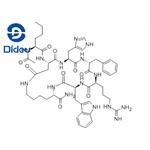
US $0.00-0.00/KG2025-11-19
- CAS:
- 121062-08-6
- Min. Order:
- 1KG
- Purity:
- 98
- Supply Ability:
- 10000KGS

US $50.00/box2025-10-16
- CAS:
- 121062-08-6
- Min. Order:
- 1box
- Purity:
- 99.99
- Supply Ability:
- 2000
